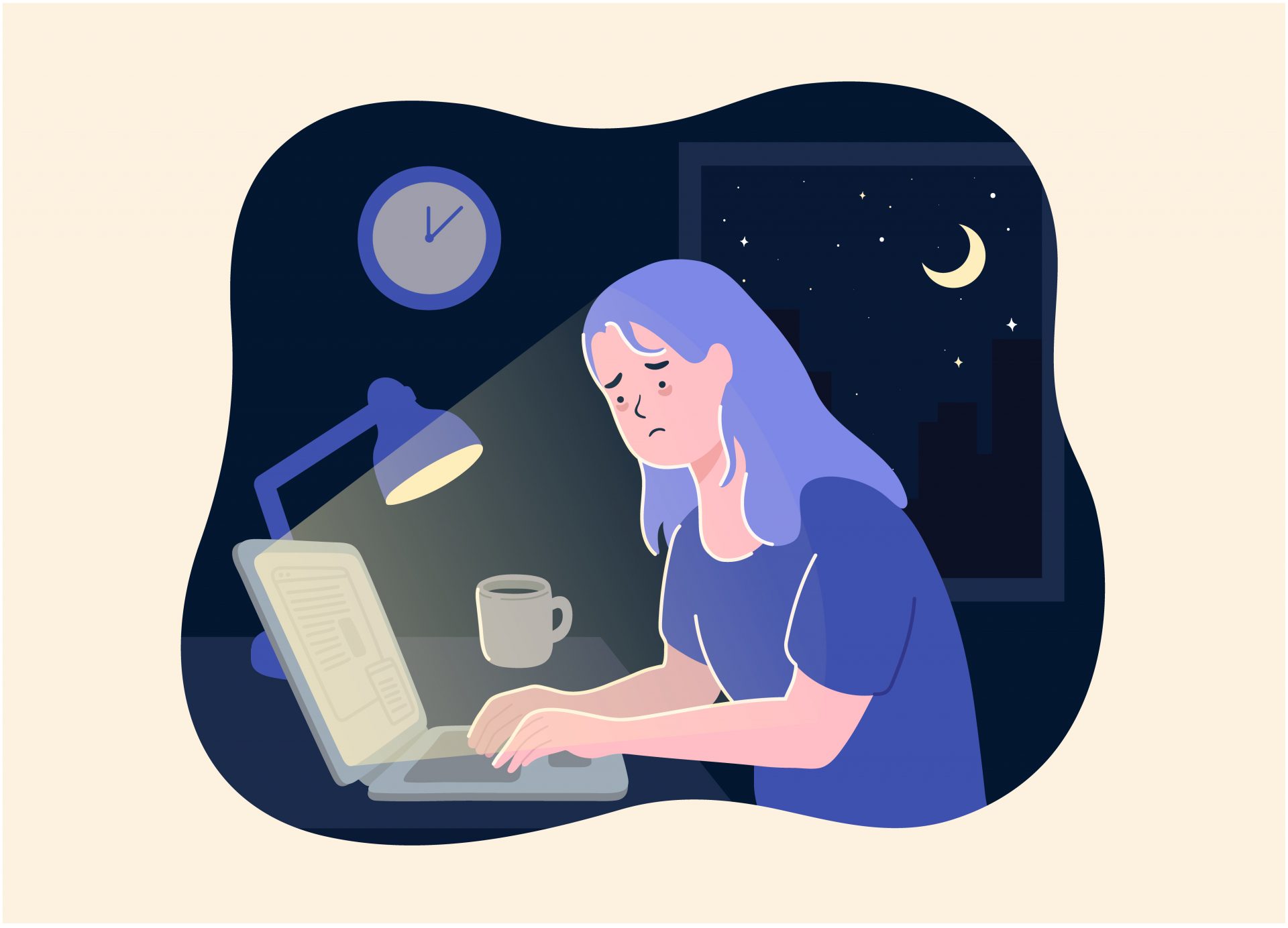Do you feel like you need to be on the go 24/7? You could be ‘addicted’ to feeling overwhelmed – here’s how to cope.
On a scale of one to 10, how stressed are you? If your answer is on the higher end of that scale, you’re not alone.
For many of us, stress has become a default way of being. Levels of stress and burnout were on the rise even before the pandemic, but working from home has undoubtedly made things worse. These days, you’d be hard-pressed to find someone whose answer to “how are you feeling” isn’t “stressed” or “tired”.
While some of our stressors – additional caring responsibilities, anxiety over job insecurity or worries about the pandemic – may be unavoidable, it’s long been clear that something needs to change when it comes to our relationships with our jobs. But despite this, things only seem to be getting worse. So, what gives?
Carly Ferguson, a career, leadership and business coach, thinks she has the answer. We’re ‘addicted’ to being stressed.
“As much as we have the desire to put new boundaries in place with our colleagues and team members and learn to say no to new projects or last-minute meeting requests, we’re simply unable to put these desires into action because these habitual patterns have taken hold of our whole being,” she explained in a recent blog post.
While, Ferguson acknowledges, we might not ‘like’ the feeling of being stressed, when we’re used to being stressed or overwhelmed all the time, it becomes our norm.
“When you’re feeling overwhelmed and stressed, the brain starts firing the exact sequences and patterns as the last time that you felt overwhelmed,” she tells Stylist. “What happens is this repeated cycle of chemicals that get released when you’re stressed cause you to become desensitised to this feeling.”

Because of this, Ferguson explains, our bodies don’t just become used to being stressed out, they also become ‘addicted’ to the feeling and crave the rush of chemicals it brings, making it hard not only to relax, but also to change our behaviour in the long term. “Your body becomes comfortable with things the way they are,” she says.
However, it isn’t all bad news. While it’s uncomfortable to admit that you might be ‘addicted’ to feeling overwhelmed, Ferguson says doing so is an important first step in unpicking these learned habits.
“There’s three stages that you need to move through – from thinking, to doing, to being,” she explains. “It’s kind of like driving a car – when you first start to learn how to drive you have to really think about everything you’re doing, but by the end you’ll drive somewhere and won’t even remember how you got there because the actions are so automatic.”
She continues: “You can’t expect to change these [stress-related] behaviours that you’ve been doing for years quickly, so you’re doing to have to learn how and go through those stages.”
Once you’ve recognised that you’re addicted to overwhelm and prepared yourself to make some changes, Ferguson recommends picturing how you’d like to be living, and using that as a motivator. Then, you’re ready to start making a change.
“You need to get really specific about what needs to change – that might be starting to say no to taking calls on a Friday when you’re not supposed to be working, or having stronger boundaries,” she says.
“To progress to the ‘doing’ stage, you then need to start checking in with yourself every day. It might be helpful to journal at the end of the day and note what went well, what triggered you, when you did things unconsciously and how you can do better tomorrow.
“Really be conscious and aware of what you’re doing – a lot of things that are making you addicted to overwhelm will be things that are external to you like your job, or your colleagues, or your clients, so you need to get OK with just sitting and listening to yourself.”
As we’ve already mentioned, in some situations it’s not possible to control your stressors. However, if you’re finding it hard to detatch yourself from work-related stress, take a step back and consider whether Ferguson’s words could apply to you.
It may not be easy, but admitting you’re ‘addicted’ to being stressed or busy all the time, and taking small, meaningful steps to unpick that, could make a big difference.
“‘I am’ is such a powerful statement, so if you’re telling yourself ‘I am always stressed’ or ‘I am always overwhelmed,’ your brain will start to believe it,” Ferguson concludes. “The hardest part is saying ‘I’m done now and I need to make a change’ – it’s a lifelong journey of unlearning.”
Images: Getty
Source: Read Full Article



